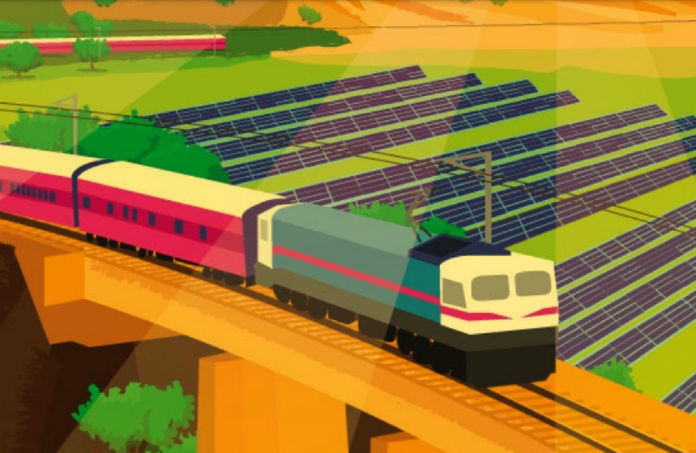In 2018, the government approved plans for 100 per cent electrification of railways by 2023. In July 2020, Indian Railways (IR) stepped up its target to net-zero emissions by 2030.
According to an environmental report, achieving this target could lead to an annual emissions reduction of at least 15 million tonnes of CO2, which could help meet 5 per cent of India’s Nationally determined contributions (NDC) target.
Also, it finds that achieving net-zero by 2030 will save Rs 17,000 crore (USD 2.3 billion) in fuel costs and other savings per year.
The report, ‘Riding Sunbeams in India,’ is prepared by environmental organisations – Delhi-based Climate Trends, UK-based Possible and Riding Sunbeams.
The report claimed that converting all current diesel traction to electricity would initially cause a 32 per cent increase in CO2 emissions due to India’s reliance on coal to produce electricity.
The report suggests IR would need to procure clean electricity from solar and wind generators connected directly into the rail network or develop new grid-connected renewable projects to match the traction energy supplied via the electricity grid.
It must be noted that IR is the largest electricity consumer and the third largest diesel consumer in India.
In 2018-19, IR used 17,682 TWh of electricity, 2,749 billion litres of diesel and one thousand tonnes of coal.
Railways account for 4 per cent of India’s total greenhouse gas (GHG) emissions (the entire transport sector accounts for 12 per cent).


